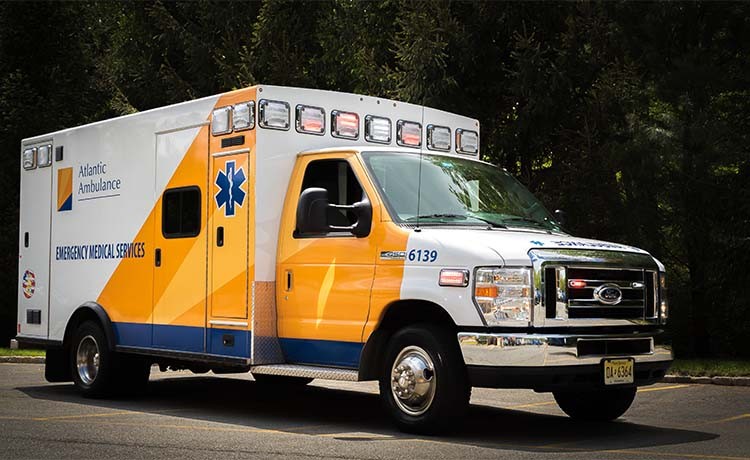At Atlantic Health System, we understand that it’s not always easy to know when you or one of your loved ones needs emergency care. An emergency can be defined as a severe injury or illness that is threatening to one’s health or might cause permanent harm. They can be both physical and psychological in nature with symptoms that may include:
- Unconsciousness or lack of response
- Skin or lips that look blue, purple or gray
- Difficulty breathing
- Chest pain or pressure
- Acting strangely or becoming more withdrawn and less alert
- Difficulty speaking clearly or garbled speech
- Weakness, numbness or incoordination on one side of the body
- Sudden loss of eyesight
- Rhythmic jerking movements or seizures
- Neck stiffness or rash with fever
- Increasing or severe, persistent pain
- Physical trauma involving the head, chest or abdomen
- Bleeding from large or deep cuts that does not stop after applying pressure for five minutes
- Burns that are large or involve the hands, groin or face
- Head injuries accompanied by a loss of consciousness, confusion, headache or vomiting
Ask your physician in advance what you should do in case of an emergency. You may also want to consider taking a basic life support course at your local hospital or school to help keep you prepared.
In case of an emergency, stay calm and:
- Call 911 if you need immediate help. If you do not have 911 services in your area, call your local emergency ambulance service or county emergency medical service.
- Bring any medication you or your loved one is taking to the hospital.
- If a person is not breathing, have someone who is properly trained start cardiopulmonary resuscitation (CPR).
- Call the poison center at once if a person has swallowed a suspected poison or another person’s medication, even if there are no signs or symptoms.
- Bring any suspected poisons or other medications the person might have taken to the hospital.
- Place the person on the floor with his or her head turned to the side if he or she is having a seizure. Do not put anything in his or her mouth.
- Do not move an injured person unless there is immediate danger.
- Apply continuous pressure to the site of bleeding with a clean cloth.
- Stay with the patient until help arrives.
Additional Emergency Medicine Resources
Locations
-
Chilton Medical Center
-
Emergency Department
-
97 West Parkway
Pompton Plains, NJ 07444
- 973-831-5447
- In the event of a medical emergency, please call 911.
-
97 West Parkway
-
Hackettstown Medical Center
-
Emergency Department
-
651 Willow Grove Street
Hackettstown, NJ 07840
- 908-850-6800
- In an emergency, please call 911.
-
651 Willow Grove Street
-
Morristown Medical Center
-
Emergency Department
-
100 Madison Avenue
Morristown, NJ 07960
- 973-971-5000
- In an emergency, please call 911. Our emergency department is accessible via Franklin Street.
-
100 Madison Avenue
-
Newton Medical Center
-
Emergency Department
-
175 High Street
Newton, NJ 07860
- 973-383-2121
- In emergencies, please call 911.
-
175 High Street
-
Overlook Medical Center
-
Emergency Department
-
99 Beauvoir Avenue
Summit, NJ 07901
- 908-522-2232
- 24 hours a day/7 days a week
- In emergencies, please call 911.
-
99 Beauvoir Avenue
-
Overlook Medical Center – Union Campus
-
Emergency Services
-
1000 Galloping Hill Road
Union, NJ 07083
- 908-522-6300
- 24 hours a day/7 days a week
- In emergencies, please call 911.
-
1000 Galloping Hill Road

Emergency Care During COVID-19
If you are experiencing a serious illness or severe symptoms of any kind, please do not put off seeking emergency medical care due to fears of COVID-19. Delaying emergency medical help could worsen symptoms or result in a life-threatening situation. In the event of a medical emergency, do not hesitate to call 9-1-1.
Patient Transfers
Our Patient Transfer Center is a service offered to hospitals, physicians and family members who wish to transfer a patient to any Atlantic Health System hospital.